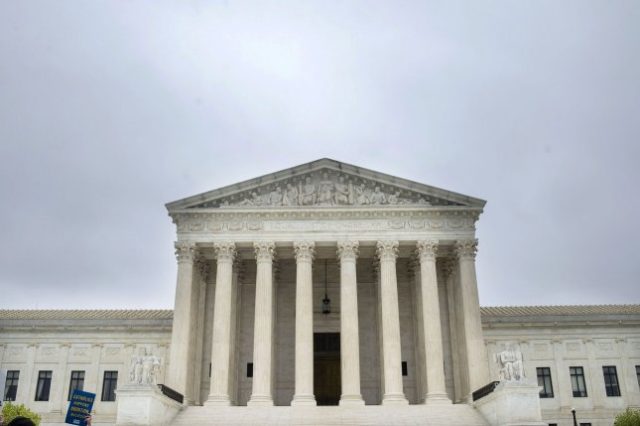June 30 (UPI) — The Supreme Court ruled Thursday that the Environmental Protection Agency has no authority in regulating carbon emissions from existing power plants.
The 6-3 ruling along ideological lines hamstrings the Biden administration in its goal of lowering the output of such emissions into the atmosphere.
Chief Justice John Roberts wrote in the majority opinion that Congress must have a say in applying such rules.
“In certain extraordinary cases, both separation of powers principles and a practical understanding of legislative intent make us ‘reluctant to read into ambiguous statutory text’ the delegation claimed to be lurking there,” Roberts wrote.
“To convince us otherwise, something more than a merely plausible textual basis for the agency action is necessary. The agency instead must point to ‘clear congressional authorization’ for the power it claims.”
The liberals on the court maintained, though, that Congress already had given the EPA that authorization through the Clean Air Act.
“Today, the court strips the EPA of the power Congress gave it to respond to the most pressing environmental challenge of our time,” Justice Elena Kagan wrote in her dissent. “It deprives EPA of the power needed — and the power granted — to curb the emission of greenhouse gases.”
The case was brought by a coalition of Republican-led states — led by West Virginia — and coal companies that contested an earlier federal appeals court decision that said the EPA had the power to issue the kind of regulations they opposed.
West Virginia’s lawsuit took issue with the 2015 Obama administration Clean Power Plan, which sought to lower carbon emissions by 32% by regulating existing coal- and natural-gas-fired power plants.
The Obama administration had planned to require states to lower carbon dioxide emissions by replacing coal power plants with green energy sources. About 62% of U.S. electricity comes from burning fossil fuels, according to government statistics.
When Donald Trump became president, he replaced President Barack Obama’s initiative with a plan that essentially removed all regulations. President Joe Biden switched course again last year after he took office and promised to slash greenhouse emissions nationwide dramatically.
Biden called Thursday’s ruling a “devastating decision” that will “take our country backwards.”
“While this decision risks damaging our nation’s ability to keep our air clean and combat climate change, I will not relent in using my lawful authorities to protect public health and tackle the climate crisis,” he said.
He said he ordered the Justice Department and other affected agencies to review the Supreme Court ruling and devise plans to allow federal law to cut back on emissions that cause climate change.
“We cannot and will not ignore the danger to public health and existential threat the climate crisis poses. The science confirms what we all see with our own eyes — the wildfires, droughts, extreme heat, and intense storms are endangering our lives and livelihoods.”
Obama called the ruling a “major step backward.”
“The court critically impeded the EPA’s ability to reduce carbon pollution, which is fueling climate change. This comes at a time when scientists are telling us it’s now or never to take action,” he said.
“This ruling is going to hurt vulnerable communities who are hit the hardest by extreme weather: families who are already having to relocate due to rising temperatures; neighborhoods that have too long been burdened by a toxic legacy of pollution; folks who have a hard time breathing without clean air.”
West Virginia Attorney General Patrick Morrisey, meanwhile, told Fox News the ruling was “a huge victory.”
“This is about maintaining the separation of powers, not climate change,” he said. “And we’re not done. My office will continue to fight for the rights of West Virginians when those in Washington try to go too far in asserting broad powers without the people’s support.”

COMMENTS
Please let us know if you're having issues with commenting.